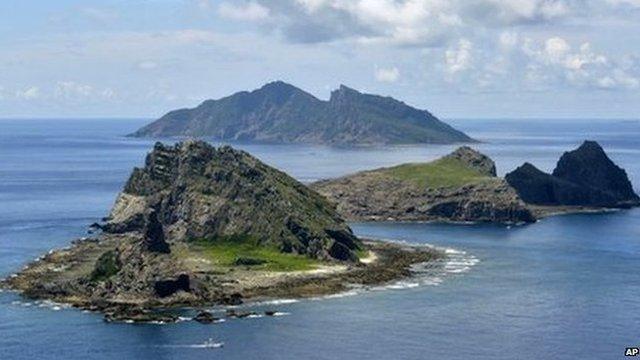China and Japan smooth over East China Sea island row
- Published
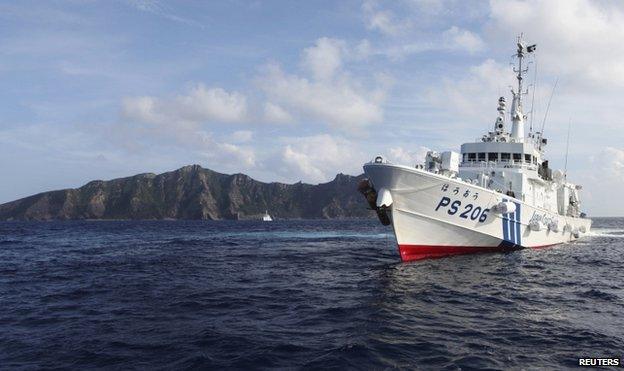
A Japanese coast guard vessel near the Diaoyu/Senkaku islands last year
China and Japan have agreed to try to reduce tensions over a disputed chain of islands in the East China Sea.
Beijing officials said a crisis management mechanism had been set up to prevent the situation from worsening.
The strategically important islands, known as Diaoyu by China and Senkaku by Japan, are controlled by Japan.
Meanwhile Japanese PM Shinzo Abe said the ground was being laid for a bilateral meeting between him and Chinese President Xi Jinping next week.
"Both Japan and China are coming to the view that it would benefit not just the two countries but regional stability if a summit is held," he said, quoted by Reuters news agency.
The meeting is expected to take place on the sidelines of the Asia-Pacific Economic Cooperation (Apec) summit in Beijing on Monday and Tuesday.
If it happens it will be the first proper exchange between the two leaders since they came to power, in 2012 and 2013 respectively.
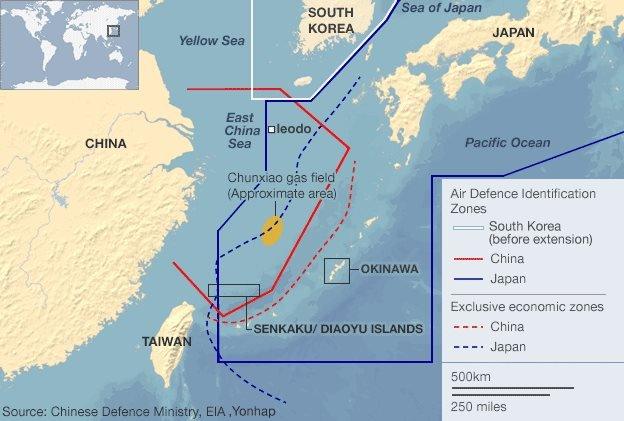
A territorial row over islands in the East China Sea has put strain on ties between China and Japan
The Chinese foreign ministry , externalsaid in a statement that senior Chinese and Japanese officials had reached a four-point agreement, which included a recognition of their "different positions" over the islands.
They had agreed "to prevent the situation from aggravating through dialogue and consultation and establish crisis management mechanisms to avoid contingencies," the statement added.
However, Reuters later quoted Mr Abe as saying that Japan's position on the islands was unchanged.
The dispute over the islands has become particularly acrimonious over the last two years.
The BBC's Martin Patience in Beijing says it has inflamed nationalistic sentiment in both countries and damaged economic ties.
The islands are close to important shipping lanes, offer rich fishing grounds and lie near potential oil and gas reserves.
In 2012 Japan moved to purchase the islands from their private owners, sparking violent anti-Japanese protests in China.
In November 2013, China announced the creation of a new air defence identification zone, which would require any aircraft in the zone - which covers the islands - to comply with rules laid down by Beijing.
Japan labelled the move a "unilateral escalation" and said it would ignore it.
The two countries also differ over Japan's actions in China during World War II.

The Islands
Rupert Wingfield-Hayes looks at the dispute over the islands
The eight uninhabited islands and rocks have a total area of about 7 sq km
They are close to strategically important shipping lanes - the waters also offer rich fishing grounds and are thought to contain oil deposits
The islands are controlled by Japan
China says they have been part of its territory since ancient times
Separately, Taiwan also claims the islands

- Published22 October 2014
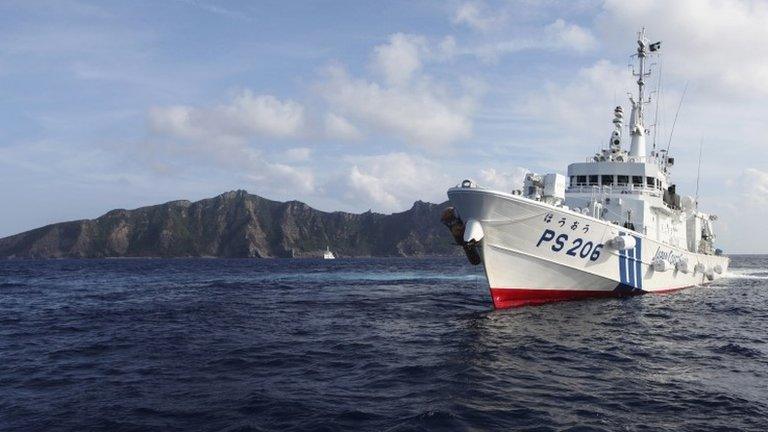
- Published2 January 2014
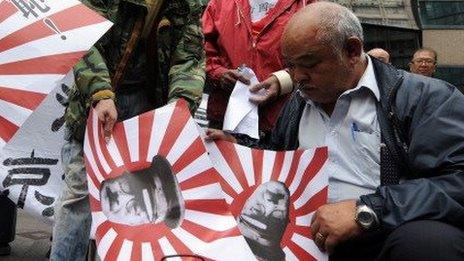
- Published8 February 2013
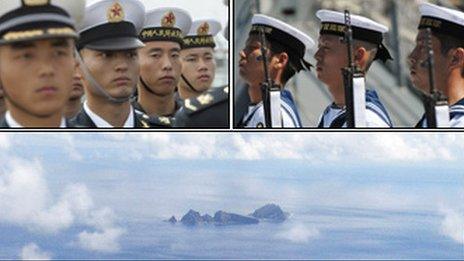
- Published25 November 2013
